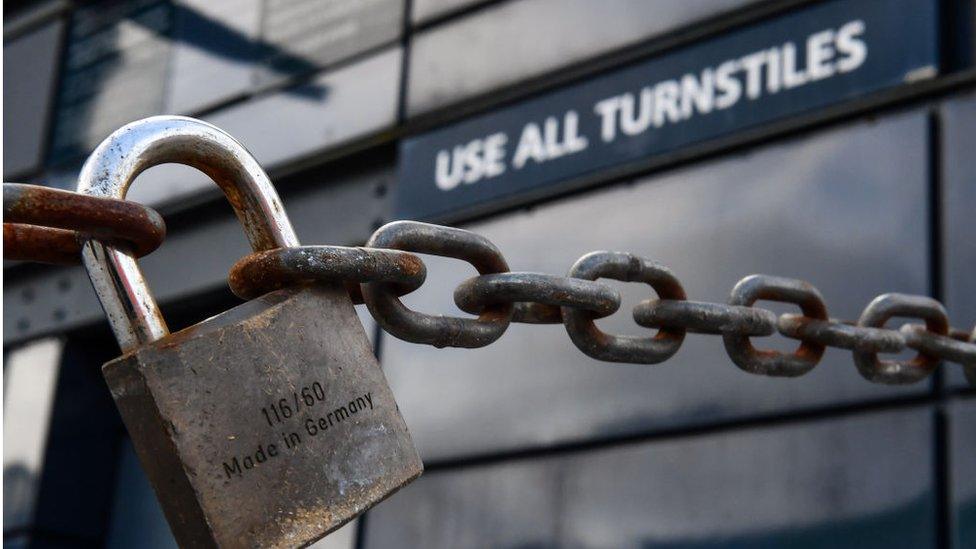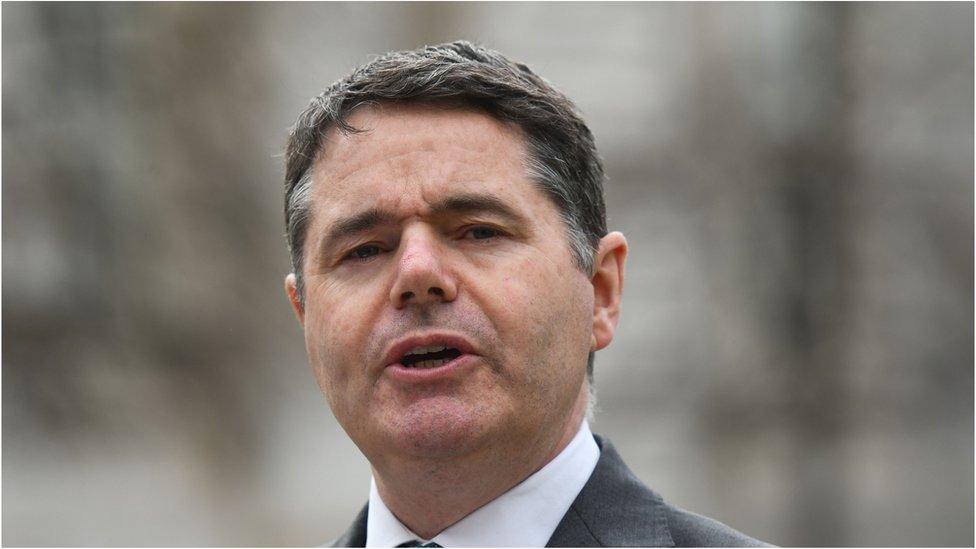Coronavirus: Ireland bans major mass gatherings until autumn
- Published

Croke Park usually hosts thousands of people for GAA fixtures every summer
Major public gatherings of more than 5,000 people have been banned in the Republic of Ireland until at least September due to the Covid-19 pandemic.
It means no major sporting fixtures or concerts will take place in the country this summer; large gatherings have been restricted since 24 March.
The government said local authorities had been advised not to consider licences for any such major events.
It confirmed 44 more coronavirus-linked deaths, bringing the total to 730.
Some 388 new cases of the disease have also been confirmed across the Republic of Ireland, bringing the total number of cases to 16,040.
The advice to ban major events will be "kept under review" in line with public health advice on mass gatherings, the government announced on Tuesday; further health advice on lockdown restrictions will be updated before 5 May.
It comes after the country's finance minister said Irish GDP is set to fall by 10.5% this year.
Paschal Donohoe said that both the Irish and global economic landscape have fundamentally changed due to the outbreak of Covid-19.

A SIMPLE GUIDE: How do I protect myself?
AVOIDING CONTACT: The rules on self-isolation and exercise
WHAT WE DON'T KNOW How to understand the death toll
TESTING: Can I get tested for coronavirus?
LOOK-UP TOOL: Check cases in your area

He said the labour market is bearing the brunt of the economic shock of the coronavirus outbreak.
The country will go from a state of near full employment to a peak unemployment rate of 22% in the second quarter and the unemployment rate will then average out at 13.9% for the year, he said.
Approximately 220,000 jobs will be lost.
Mr Donohoe's comments came as he published the Government's Stability Programme Update 2020 (SPU).

Paschal Donohoe said the Covid-19 restrictions will lead to 'unprecedented levels of unemployment'
This sets out an economic scenario for 2020 and 2021 and which now incorporates the impact of the Covid-19 pandemic.
"The Irish economic landscape, in common with elsewhere, has been turned on its head in recent weeks," he said.
"The necessary restrictions to limit the transmission of the Covid-19 virus have resulted in a severe recession and unprecedented levels of unemployment."
He also said the gradual recovery assumed in the second half of the year is projected to gain momentum next year, with the economy growing by 6% and unemployment falling to below 10% next year.
"It is expected that economic activity will reach its pre-crisis level in 2022," the minister added.
He also said that the country's budget deficit is expected to be 7.4% this year, or €23bn (£20bn).